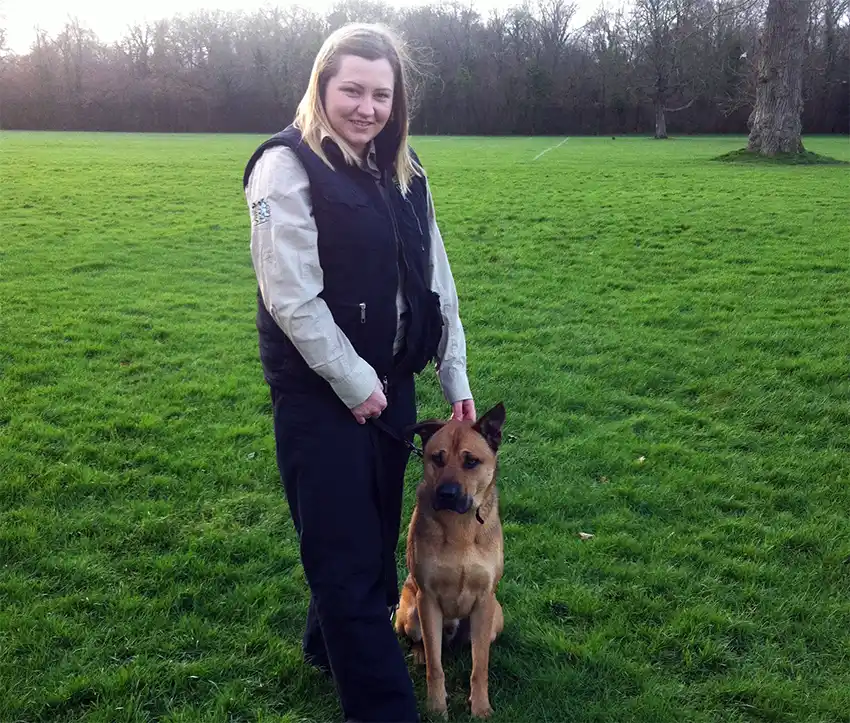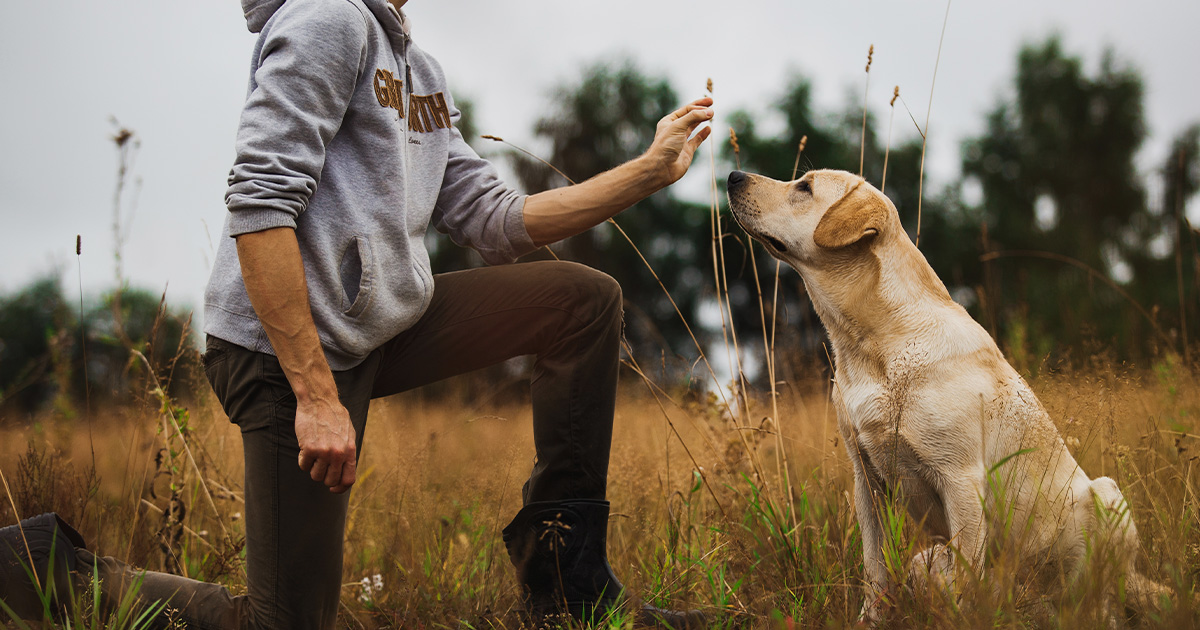The Ultimate Guide to Canine Training: Transform Your Family pet's Actions
Efficient pet training is necessary for cultivating a harmonious connection between animals and their proprietors. The details of canine actions and the implementation of structured training strategies play a crucial duty in this procedure. By comprehending the concepts of positive support, uniformity, and socializing, family pet owners can browse common difficulties that arise during training. This guide not just intends to equip you with the necessary devices to transform your pet dog's habits yet also invites you to explore exactly how these fundamental principles can cause a deeper connection with your pet. What could be the primary step in this transformative journey?
Comprehending Dog Actions
Understanding pet behavior is crucial for efficient training and an unified partnership between pets and their owners. A pet's habits is influenced by a mix of genetics, setting, and experiences. Dog training. Recognizing these variables enables owners to tailor their training approaches to fulfill the private demands of their family pets
Pets interact largely with body movement, vocalizations, and face expressions. For instance, a wagging tail can show excitement or joy, while a tucked tail may signify concern or entry. Observing these cues allows proprietors to react appropriately, strengthening favorable behaviors and dealing with negative ones effectively.
In addition, understanding the social structure of canines can supply insights right into their habits. Dogs are pack animals, and they flourish in an organized setting. Developing regular policies and clear borders can avoid complication and promote a sense of safety and security.
In addition, acknowledging the all-natural instincts of pet dogs, such as the desire to chase or dig, is essential. These instincts can be redirected via ideal electrical outlets, such as play or workout. By thoroughly understanding these behavioral elements, proprietors can foster a favorable training experience, eventually resulting in a well-adjusted and obedient canine friend.
Important Training Strategies
Efficient dog training counts on a variety of crucial techniques that can substantially enhance the learning process for both the owner and the pet. One essential method declares support, which includes fulfilling desirable behaviors with deals with, praise, or play. This method urges canines to duplicate the actions that lead to favorable outcomes, fostering a relying on connection in between the family pet and proprietor.
Another trick method is consistency in commands and assumptions. Utilizing the same verbal signs and hand signals helps the dog comprehend what is needed, decreasing confusion and promoting quicker understanding. Furthermore, developing clear limits and guidelines is important for efficient communication.
Socialization is also a vital element of training. Exposing pets to various settings, individuals, and other animals aids them establish suitable social skills and lowers stress and anxiety in unknown situations.
Last but not least, patience and timing are crucial. Training sessions need to be short but constant, making certain that the pet dog remains involved and receptive. By utilizing these important methods, proprietors can produce a structured and positive training experience that advertises excellent habits and enhances the bond with their canine companions.
Developing a Training Set Up
How can a well-structured training schedule enhance a dog's learning experience? A training schedule provides uniformity, guaranteeing that pets get regular, concentrated guideline. This predictability helps pets recognize what is anticipated of them, enhancing their knowing and permitting for better retention of commands and habits.
When producing a training routine, it is vital to take into consideration the canine's age, type, and private character. Youthful puppies may take advantage of much shorter, more regular sessions, while grown-up dogs may love longer, much less frequent training durations. Including a variety of activities can likewise keep the sessions engaging, preventing boredom and promoting interest for discovering.
In addition, scheduling training sessions at certain times of the day can aid important site strengthen a regimen. Combining training with daily walks or play can develop a positive association with knowing. It is content likewise vital to consist of time for reinforcement, such as treats or appreciation, to compensate wanted behaviors without delay.
Finally, versatility is crucial. While consistency is vital, being adaptable to the dog's mood or power degree can improve their knowing experience. A well-crafted training routine inevitably lays the structure for reliable communication and a more powerful bond between the canine and owner.
Usual Training Obstacles
Regardless of having a well-structured training routine, pet proprietors commonly come across various difficulties throughout the training procedure. One typical concern is disparity in commands and signs. When numerous family members make use of various terms or tones, a pet might end up being confused, preventing its capability to learn properly.
An additional regular challenge is disturbance. Dog training. Pet dogs are naturally interested animals, and external stimulations such as other pets, noises, or people can divert their attention during training sessions. This calls for owners to create a regulated setting or slowly introduce interruptions to reinforce focus
Additionally, differing power degrees can impact training outcomes. High-energy pets might struggle to calm down and concentrate, while extra laid-back breeds may require additional inspiration to involve. Tailoring the training strategy to fit the specific dog's personality is vital for success.

Building a Solid Bond
A solid bond in between a canine and its owner is crucial for effective training and total well-being. Dog training. This relationship cultivates trust, which is essential for this page efficient communication during the training procedure. When a pet feels linked and safe and secure to its proprietor, it is most likely to respond favorably to commands and cues
To build this bond, consistency is essential. Developing a routine that includes regular feeding, workout, and training sessions aids develop a sense of security. Furthermore, positive reinforcement techniques, such as deals with, praise, and play, enhance desired behaviors while reinforcing the psychological link.
Socialization is an additional important aspect of bond-building. Revealing your pet to different settings, people, and various other animals aids them really feel a lot more confident and comfy, improving the bond with their owner. Participating in tasks together, such as strolling, playing fetch, or getting involved in obedience training, advertises team effort and shared satisfaction.
Verdict

Comprehending dog habits is important for efficient training and an unified relationship between pets and their owners.Effective pet dog training counts on a variety of vital strategies that can significantly improve the learning process for both the pet dog and the proprietor.In spite of having a well-structured training routine, dog owners commonly encounter various challenges during the training process.In conclusion, efficient pet dog training counts on a thorough understanding of canine behavior, the application of essential techniques, and the establishment of a structured training routine. By highlighting positive reinforcement and consistency, canine owners can significantly enhance their animals' behavior, ultimately ensuring a harmonious relationship and promoting the well-being of both the canine and its environment.